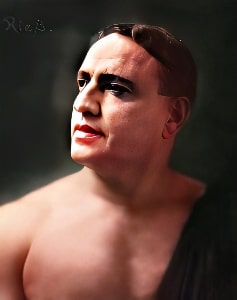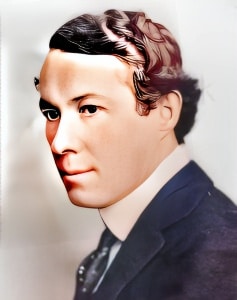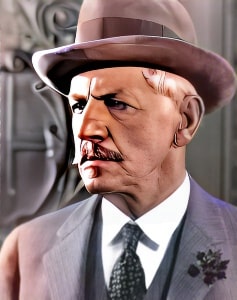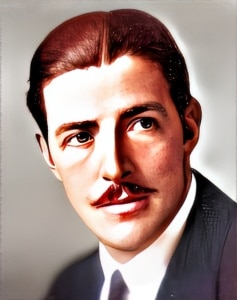 Bartolomeo Pagano, also known as “Maciste,” was an Italian actor who left an indelible mark on the early years of cinema, particularly during the silent film era.
Bartolomeo Pagano, also known as “Maciste,” was an Italian actor who left an indelible mark on the early years of cinema, particularly during the silent film era.
Born on November 7, 1878, in Italy, Pagano’s career as a film actor began in the early 1910s, and he became internationally recognized for his portrayal of the iconic character Maciste. His work in silent cinema not only earned him fame but also left a lasting legacy.
Maciste, a strong and heroic character, became synonymous with Bartolomeo Pagano. He first played this character in the 1914 film “ Cabiria,” directed by Giovanni Pastrone. The film was a historical epic set during the Second Punic War and marked a milestone in the silent film era due to its grand scale and innovative cinematography. Pagano’s performance as Maciste in “ Cabiria” showcased his physical prowess and made him an instant star. The character Maciste became an enduring figure in Italian cinema and continued to appear in numerous films, both as a central character and in supporting roles.
One of the defining features of Pagano’s acting was his remarkable physicality. He had a strong and imposing presence, which was ideal for roles that required physical strength and heroism. His athleticism and ability to perform daring stunts contributed to his popularity and made Maciste a beloved character.
After “ Cabiria,” Pagano reprised his role as Maciste in a series of films, such as “Maciste in the Lion’s Den” (1916) and “Maciste the Warrior” (1919). These films often featured Maciste as a hero overcoming various challenges and adversaries, cementing the character’s status as a symbol of strength and valor.
Pagano’s influence extended beyond Italy, and Maciste became known internationally. In the United States, the character was renamed “Hercules” in some films, capitalizing on the popularity of the Hercules mythology.
While Maciste was his most iconic role, Pagano also appeared in other films, including “Ulysses” (1911), “Umberto I” (1915), and “The Iron Crown” (1916). His versatility as an actor allowed him to take on a range of characters beyond the strongman persona for which he was famous.
With the advent of sound cinema in the late 1920s, Pagano’s career, like that of many silent film stars, faced challenges. His deep, rumbling voice did not align with the expectations for the new medium, and he made a limited number of sound film appearances. However, his contributions to the silent film era and the creation of the enduring character Maciste secured his place in cinema history.
Bartolomeo Pagano’s portrayal of Maciste remains iconic and has left an indelible mark on the history of cinema. He is celebrated for his physicality, charisma, and ability to bring larger-than-life characters to the screen. His work in silent cinema serves as a reminder of the early days of filmmaking when actors like Pagano played a crucial role in shaping the art form. His legacy endures, and his portrayal of Maciste remains a beloved figure in the history of Italian and international cinema.
Loading live eBay listings...




